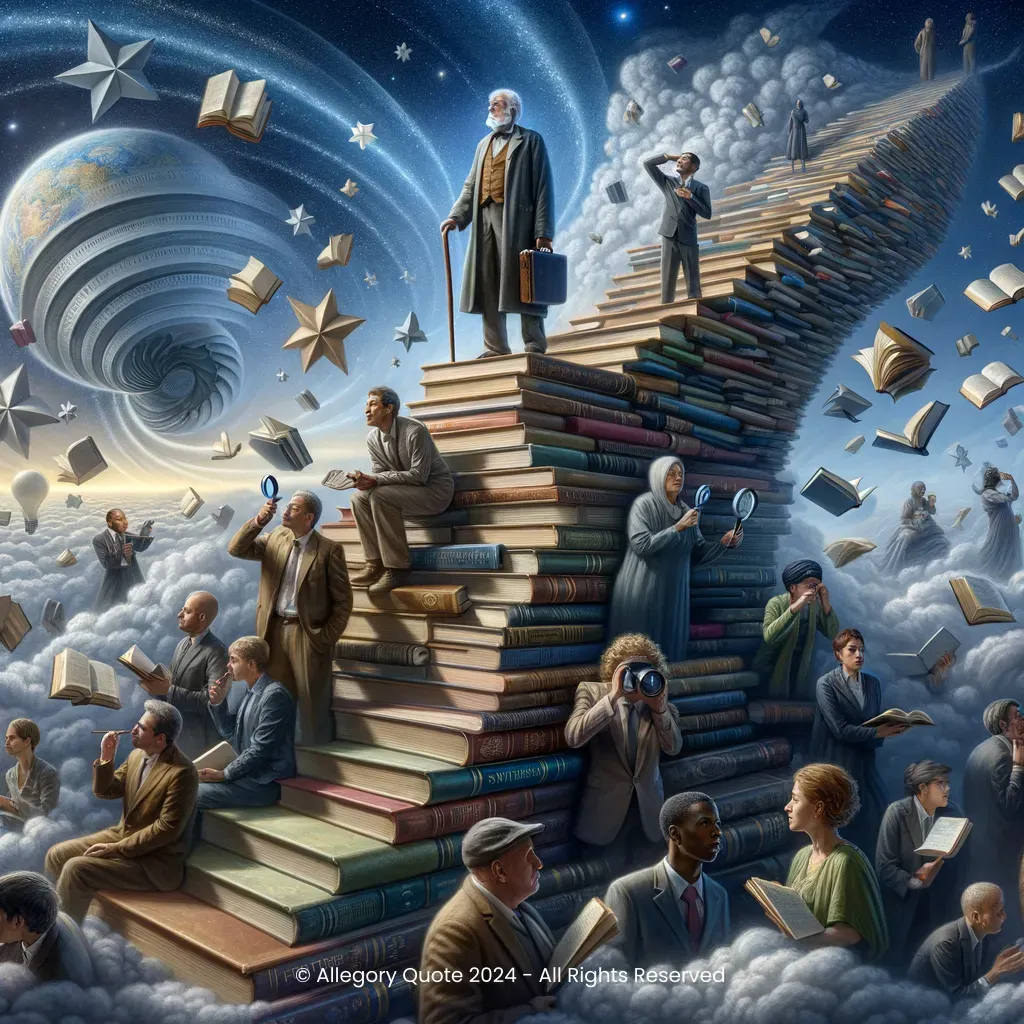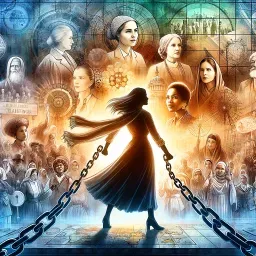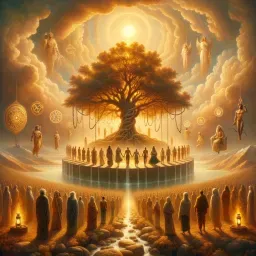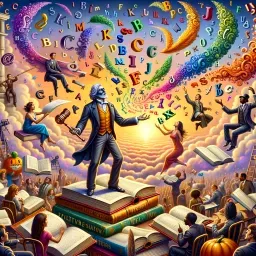”You are entitled to your own opinions,
but not your own facts“

0
0
0
0
- Meaning
- The phrase means that while everyone is allowed to have their personal perspective or subjective viewpoint (opinions), objective reality (facts) remains constant and unchangeable. This underlines the importance of recognizing factual information as a common ground for discussion and decision-making, rather than allowing facts to be distorted by individual biases or misinterpretations.
- Allegory
- The wise elder stands on a staircase made of books, each step representing foundational knowledge and verifiable facts, leading up to a clear horizon with stars, symbolizing ultimate truths. The swirling clouds behind him signify the confusion and chaos that can arise when opinions are mistaken for facts. The people in the scene, with magnifying glasses and question marks, illustrate the engagement in discerning facts from opinions. This visual representation captures the importance of striving for factual accuracy in discourse while acknowledging the presence of diverse opinions.
- Applicability
- In personal life, this phrase can serve as a reminder to base opinions and decisions on verifiable information rather than subjective interpretations or hearsay. It encourages critical thinking and helps maintain intellectual integrity in discussions, whether they are about everyday matters or significant policies.
- Impact
- The impact of this phrase is substantial, particularly in contexts like journalism, political discourse, and education. It has been cited in numerous debates and discussions, reminding people about the importance of grounding their arguments in factual evidence. It has also inspired conversations about media literacy and the importance of filter bubbles in the digital age.
- Historical Context
- The phrase likely gained prominence in the late 20th century. During this period, Moynihan was active in politics and public discourse, emphasizing reasoned debate and the importance of factual accuracy in political and social issues. It resonates in contemporary contexts like media discussions and political debates, where distinguishing facts from opinions is crucial.
- Criticisms
- Criticisms of this phrase generally revolve around the grey areas where facts may be subject to interpretation or where new evidence can change previously accepted facts. Additionally, some argue that the distinction between opinions and facts can sometimes be blurred, especially in areas like social sciences or humanities, where subjective interpretation plays a larger role.
- Variations
- There aren’t significant well-known variations of this phrase, but its core message resonates across different cultures, often aligning with values that prioritize truth and knowledge. In some cultures, traditional proverbs or sayings emphasize wisdom and factual integrity in discourse.
-

The arc of the moral universe is long, but it bends toward justice.
-

Wrinkles should merely indicate where smiles have been.
-

We cannot solve our problems with the same thinking we used when we created them.
-

The unexamined life is not worth living.
-

The true test of a man's honor is his loyalty to his country.
-

Well-behaved women seldom make history.
-

I am the way, the truth, and the life; no one comes to the Father except through me.
-

The truth shall set you free.
-

I don't give a damn for a man that can only spell a word one way.
-

If you would be loved, love, and be lovable.
-

Courage is not the absence of fear, but the triumph over it.
-

The best way to predict the future is to create it.
No Comments